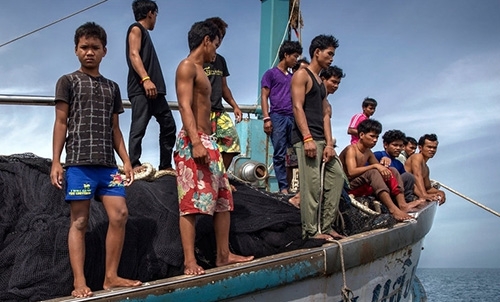Slavery in the Sea
Jakarta/ Bangkok: Slavery in Thai boats and illegal fishing has been reportedly evident in the remote islands of eastern Indonesia in 2015.
According to a report in Al Jazeera, illegal fishing in Indonesian territorial waters had risen to an extreme level, but many of the Thai fishing boats responsible harboured even worst, slavery.
Over 2,000 men have come forward who were enslaved on Thai fishing boats in Indonesian waters last year, some of them,working for a decade without pay.
Migrants from Cambodia, Myanmar and Laos seeking higher-paying jobs, were lured onto Thai fishing boats with empty job promises and, in some cases, years of ongoing seaborne labour.
Many of the enslaved fishermen were physically assaulted and starved.
"The way they forced us to work is worse than slaves. Slaves would have their own time, and we didn't have any. We didn't have time to sleep. We didn't have time to eat. We only had time to work,” one of the trafficked fishermen said.
The illegal fishing boats and their cheap crews were ironically essential to one of the world's most important food suppliers - Thailand's $7billion fishing industry.
Thailand is the world's third-largest seafood exporter, and the United States its biggest consumer - including tuna and shrimp.
"It's almost impossible to separate what effectively are slave-caught fish from fish that are caught through more legitimate means.... It is in fact part of the business model. One of the reasons why your shrimp cocktail at your local restaurant doesn't cost you an arm and a leg, is because the labour cost is so low," says Paul Dillion from the International Organization for Migration.
Related Posts




